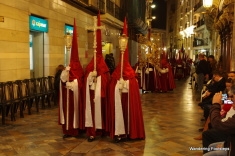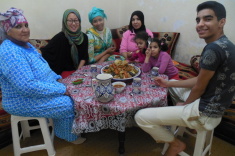I’ve spoken a few times about my neighbor, Lance. I wanted to dedicate an entire blog entry to him because he has told me so many stories about life in Zimbabwe. It’s really been quite a truthful, shocking gaze into the life of a white Zimbabwean farmer. I held off writing until now because I was hoping to hear more details about these stories before blogging, but I won’t see him for a few weeks, and I don’t want to forget the tidbits that I have already been told. Bare with the mere skeletons of stories.
Lance grew up on a Zimbabwean farm. It’s not the only life he knows, as he did live in the UK for a few years, but it’s the only life he loves. He used to farm elsewhere in Zimbabwe, but now has to farm on this farm because it’s the only way to ensure his safety. During the last elections, Lance refused to vote. I was surprised to hear that; I, of course, assumed that people here would jump at the chance to oust the current president. But when he told me why he refused to vote, I understood. One day, as he was working out on the farm, some government officials came up to him and asked him why he hadn’t voted (they had the voting records in hand). He made some excuse, and the officials offered to escort him to the voting pole. Seeing that he couldn’t weasel himself out of that situation, he followed them to the polling station. He voted for Mugabe that day. Shocked, I asked him why he simply didn’t vote for the opposition once he arrived – surely he had a private booth, as we do in Canada. He said, sure, it was MEANT to be private. But the government officials came behind the booth with him, guns in hand, and watched as he ticked Mugabe. Apparently, other people who voted that day with him and didn’t tick the “right” name disappeared soon after.
Eventually, he and his wife were kicked off the last farm where they worked (this is common). One day, people came straight up to his home and told him to leave. He said he would leave, but not without his things, and so the people (kindly) allowed him until nightfall to leave. He did manage to gather and move all his belongings that day, but can you imagine it? He told me this story so matter-of-factly, but truly, I couldn’t picture being forced off my property without reason or compensation, and without allowing me the time to physically and emotionally detach myself.
So now Lance, his wife, father, and mother live and work on this farm because it is protected by German business interests. It’s safer for them, but definitely not ideal – they are no longer their own bosses and they are less financially secure. And furthermore, half of this farm has been taken away by the “government” and redistributed. I use “ “ because apparently a lot of the “official” paperwork is actually forged, so the land is disputed. Lance and his family are waiting for some officials to verify the papers, but it’s all working incredibly slowly. In the meantime, part of the land that Lance is managing has been taken over by settlers and rendered unproductive. Lance still has to produce the same amount of yield, though, with half the amount of land.
No wonder Lance doesn’t watch the news – it’s too depressing, he says.
Wandering Footsteps: Wandering the World One Step at a Time » A travel journal following a family on their overland trip around the world.
|
|
|


